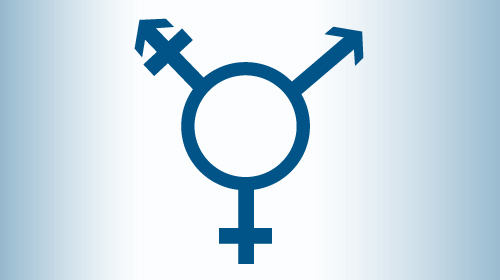
Consider this: A person applies for a job at the federal Bureau of Alcohol, Tobacco, Firearms, and Explosives as a ballistics forensic technician, is well-qualified for the position, and is offered the job. She then tells ATF that she is transitioning from male to female. A few days later, she's told the job has been cut for budget reasons. And then she learns that the job hasn't been cut, it's simply been given to someone else, who isn't transgender.
ATF wanted to hire her when it thought she was a man, but not when it realized she was a woman. Sounds like a clear case of sex discrimination, right? But back in the 1980s, several courts ruled that the federal ban on sex discrimination doesn't cover transgender people. Since then, most of our efforts to secure workplace fairness protections for transgender people have focused on passing laws that explicitly cover gender identity or expression. At the state level we're making decent progress – 16 states now ban employment discrimination based on gender identity or expression (and 21 states ban sexual orientation discrimination). But at the federal level, the Employment Non-Discrimination Act, which would cover sexual orientation and gender identity or expression, has not gotten enough traction on Capitol Hill to pass in Congress.
Some LGBT rights advocates, including us here at the ACLU, didn't give up on the sex discrimination argument, however, and in the last few years we're starting to make real progress. That progress got a huge boost this week, when the Equal Employment Opportunity Commission, the federal agency tasked with enforcing the nation's workplace nondiscrimination laws, released an amazing decision that makes a profound contribution to equality for transgender people all across America. In the case about that ATF applicant, the EEOC followed common sense and declared that discrimination against transgender people violates the existing federal ban on sex discrimination in employment, repudiating the earlier decisions. It's about time!
The EEOC case was brought by our friends at the Transgender Law Center, and it builds on earlier wins in court, including the ACLU's case against the Library of Congress on behalf of Diane Schroer, Lambda Legal's federal circuit court decision late last year for Vandy Beth Glenn, and several other appeals court cases. The EEOC ruling means that all transgender people working for the federal government are now protected against discrimination. And the ruling also means that federal courts across the country should follow the EEOC's interpretation of the federal employment law. That alone makes this a momentous decision.
But there's more: The reasoning at the heart of the EEOC decision should mean that the federal bans on sex discrimination in housing, education, and credit also cover transgender people. So this ruling can and should lead to comprehensive federal protection for transgender people, all based on existing statutes. We still need to pass ENDA and other federal statutes to make crystal clear that anti-LGBT discrimination is unlawful, but getting ENDA passed should be easier now that transgender people are covered under the sex discrimination bans. It shouldn't have taken decades to get to this common-sense conclusion. But it's wonderful to see perseverance and logic prevail!
Learn more about workplace discrimination: Sign up for breaking news alerts, follow us on Twitter, and like us on Facebook.

